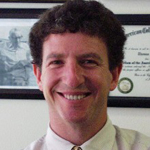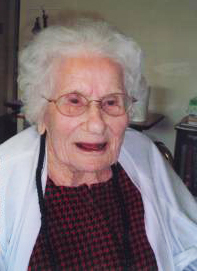 By Dr. Tom Perls (pictured) and Grant CampanyDr. Perls is Director, New England Centenarian Study and Associate Professor of Medicine at Boston University School of Medicine. Grant Campany is Senior Director of the Archon Genomics X PRIZE presented by Express Scripts.
By Dr. Tom Perls (pictured) and Grant CampanyDr. Perls is Director, New England Centenarian Study and Associate Professor of Medicine at Boston University School of Medicine. Grant Campany is Senior Director of the Archon Genomics X PRIZE presented by Express Scripts.
If you knew you were going to live to celebrate your 100th birthday, would you approach your everyday life differently? Would you change your exercise, diet, career and finances? Historically, the odds of achieving this chronological milestone were against you, but your luck may be changing. We are on the eve of significant technological breakthroughs with the potential to redefine not only the average life span but also the practice of medicine.
Why Centenarians?
Average life expectancy in most industrialized countries is now a remarkable 81 years. In 1900 it was about 45 years and in 1960 it was about 60 years. Clean water, ample food supplies, safe working conditions and major medical breakthroughs like antibiotics, vaccines, modern-day obstetrics, cardiac care and surgery continue to advance and enhance our lives.
Our "average" DNA, healthy diet, lifestyle and exercise habits, combined with medical advances, can result in a remarkable life expectancy - nearly 30 years beyond the age of 60, leading fully functional and independent lives. But how is it that some people live to 100 or even 110 years?
Decoding the Secrets of Centenarians
The New England Centenarian Study (NECS), led by Tom Perls, recently published findings from the study of several different groups of centenarians demonstrating that there is a very strong genetic influence to exceptional longevity, particularly for those living to 107 years or older. NECS research also revealed that these super agers possess "protective genes," which markedly increase their resistance to age-related diseases like Alzheimer's disease, heart disease, stroke and cancer, even at advanced ages well beyond 100 years.We feel strongly that by studying centenarians we can begin to understand the underlying genetics of longevity. This research may offer tremendous insights, improving the quality of life for everyone.
We All Win From This X PRIZE
In order to identify and study these protective genes, we need the ability to quickly, accurately and affordably sequence the entire DNA strand, which is called the whole human genome.
This is where the Archon Genomics X PRIZE presented by Express Scripts comes in, with a $10 million incentivized competition designed to propel whole human genome technology forward, creating a faster, much less expensive and much more accurate method of sequencing.
Next year, the competition will give teams only 30 days to sequence 100 whole human genomes of vital centenarians, with an accuracy of 99.9999 percent and costing no more than $1,000 per genome. And today, we publicly announced the official entry by Ion Torrent. We are very excited about Ion Torrent's entry and encourage other companies to participate in this groundbreaking competition.
The 100 vital centenarians who are generously donating their DNA for this competition will be forever known as the Express Scripts 100 Over 100. These "genomic pioneers'" rare DNA will give researchers a gold mine of genetic information.
In order to increase the scientific utility of this Prize, we are attempting to recruit 100 ethnically diverse centenarians from around the world and wherever possible, super centenarians - those who live to 110 and beyond. The DNA provided by the Express Scripts 100 Over 100 is a key component of the $10 million Archon Genomics X PRIZE presented by Express Scripts.

How Super is 115 Years Old?
Besse Cooper, at 115 years of age, is known as a super centenarian. She is the eldest of the Express Scripts 100 Over 100 genomic pioneers and currently the oldest living person in the world according to Guinness World Records. Her DNA, along with 99 other centenarians, will be sequenced by every team competing in the Archon Genomics X PRIZE presented by Express Scripts in September 2013. Once the competition ends, the resulting genomic data will be provided freely, via the National Institutes of Health, to researchers around the world, thus creating one of the most robust sets of genomic data ever assembled.
Studying Health to Unlock the Mysteries of Disease
The National Institutes of Health (NIH) budgeted $32 billion in 2012 to support work by more than 325,000 scientists affiliated with approximately 3,000 organizations. One of the key objectives of the NIH is to support technologies that can accelerate discoveries, such as next generation genomic sequencing. We believe there is tremendous value in unlocking our understanding of the power of "protective variants." Giving researchers the first set of highly accurate genomes of centenarians is an opportunity to unlock the secrets these centenarians hold in their DNA, which protects them from disease and enables living exceptionally well to the century mark and beyond. Research, medical breakthroughs, new discoveries and therapies will be the lasting legacy to benefit humanity.

Why We Want Your DNA
The Archon Genomics X PRIZE presented by Express Scripts is looking for "genomic pioneers:" individuals born before September 5, 1913 willing to be part of the Express Scripts 100 Over 100.
They will be part of an exclusive group of individuals whose generous contribution of rare DNA will help researchers unlock the secrets of 10,000 years of life.
All we need is their DNA.To answer the call and nominate a centenarian you know, go to:http://genomics.xprize.org/join
Visit X PRIZE at xprize.org, and follow us on Facebook, Twitter and Google+.